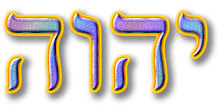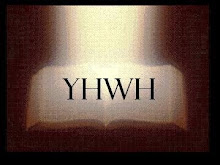Here is historical data about Easter, the Early church and the church of Constantine...the Catholic church
Evils Of Easter
What do rabbits, eggs, and the resurrection of the Savior really have in common? The Easter story that most of the world knows is one of hope, joy, and an empty tomb. The Easter story of history is quite different.
Like many other popular holidays, Easter is actually a mix of ancient occultic practices and Biblical ideas. From the name of the holiday to the use of baskets and bunnies, many evil customs of idolatry have been fossilized in Easter. Thousands of years before 33AD the fertility goddess "Ishtar" was worshipped as people died eggs and arose early for sunrise services.
The Encyclopedia Britannica (1934) states: "Easter, Ostara, or Ishtar was the goddess of Spring in the religion of the ancient Angles and Saxons. Every April a festival was celebrated in her honor. With the beginnings of Christianity, the old gods were put aside. From then on the festival was celebrated in honor of the resurrection of Christ, but was still known as Easter after the old goddess."
The true origin of Easter is more about fertility and mother earth than the Bible. "The egg was a sacred symbol among the Babylonians. They believed an old fable about an egg of wondrous size which was supposed to have fallen from heaven into the Euphrates River. From this marvelous egg - according to the ancient story - the Goddess Ishtar (Semiramis), was hatched. And so the egg came to symbolize the Goddess Easter," The Jewish Encyclopedia, Vol. 9, p. 309. Three month old infants were sacrificed to Ishtar and their blood was used to dye eggs in honor of the false god. To imbue fertility upon their growing season, Pagans would roll these eggs on their fields. The eggs were then hidden from evil spirits to later be collected in baskets.
The word "Easter" appears only once in the King James Version of the Bible (and not at all in most other translations). From this one appearance a true concern arises. Here, the King James translators mistranslated the Greek word for Passover as "Easter." Acts 12:4: "And when he [King Herod Agrippa I] had apprehended him [the apostle Peter], he put him in prison, and delivered him to four quaternions of soldiers to keep him; intending after Easter to bring him forth to the people." The Greek word for "Easter" in this verse is "pascha." This term is properly translated over 28 times in the Bible as "Passover." Passover is a yearly festival that recalls Israelite's exodus from Egypt. This holy day was given to mankind (and not just the Jewish people) as an everlasting commandment. Passover was part of the original faith of the Apostles and the Savior. Sadly, the mistranslation in the book of Acts is just one example of how the true festival of Passover has been replaced with the idolatry of Easter.
Neither the apostles nor the Messiah commemorated Easter. "Constantine the Great, Roman emperor, convoked the Council of Nicaea in 325. The council unanimously ruled that the Easter festival should be celebrated throughout the Christian world on the first Sunday after the full moon following the vernal equinox," says the History Channel. For the first 300 years after the Savior's crucifixion, the early church kept the festival of Passover as commanded in Leviticus 23.
The holiday of Ishtar/Easter is problematic for a person who seeks undefiled worship. The mixture of bunnies, baskets, and the Bible believer certainly is perplexing. "The Almighty is spirit and those that worship him must worship in spirit and in truth," John 4:24.
By Daniel Rendelman
ravemet@comast.net
www.emetministries.com
Subscribe to:
Post Comments (Atom)











No comments:
Post a Comment